The students in our sustainability course have been having a fantastic discussion on chart review, which inspired me to update the clinical guide on peer review and competency. I have added a significant amount of content, including specific sections on how to conduct chart review, and a new section on quality assurance and quality improvement. […]
Search: “quality assurance”
We found 14 results for your search.
Unless you’re brand new to the site, you already know I am a big proponent of quality assurance (QA) and peer review. As a part of my job I review a lot of medical records (nurse- and physician-generated), and there are some things in said records that scream “my program has no QA process”. Since […]
The issues of peer review and competency are critical ones in forensic healthcare. Because of the potential legal ramifications of our findings, we have to be confident in our capacity as objective clinicians, and current in our knowledge and approach. Having some type of quality assurance process in place can ensure that we meet the […]
(Have you entered our giveaway yet for IAFN conference registration?) BMJ has a new full-text article available, How to get started in quality improvement. If you’ve spent any time on this site you know I’m a big fan of any type of programming that affirmatively identifies issues and ideally, makes system-level changes to reduce or eliminate those […]
This Forensic Nurses Week, we’re talking about ways to make our practices better. The last couple days have focused on individual performance. Today, let’s talk about program performance… The expert at trial should never be the first person to review our record of the patient encounter. But that’s exactly what happens when a forensic nursing […]
The issue of whether forensic clinicians have to testify, and if so, who determines whether they testify as a fact witness or an expert witness is one that we discuss regularly in these circles. I’ve written about it before; nothing in that post has changed. What I want to emphasize is that there are many areas in […]
{Once again, let me preface this by saying I am not the definitive authority on this topic. I am one woman with an opinion who provides care to adult and adolescent domestic violence and sexual assault patients. At the end of the day, you need to decide the best course of action to take for […]
The issues of peer review, quality assurance/improvement, and competency are critical ones in forensic healthcare. Because of the potential legal ramifications of our findings, we have to be confident in our capacity as objective clinicians, and current in our knowledge and approach. Having some type of quality assurance process in place can ensure that we […]
Big “C” Conversations
When I was in Kansas City last week one of my sessions was geared toward emerging issues in forensic healthcare. I was asked to speak on the topic, and while I understand that the request was geared more towards a “specific populations and circumstances” kind of talk, I decided to take it in a slightly […]
10 Things: Hopes for 2013
As we begin a new year, here is what I’d love to see more (and less) of in 2013:
[Ed: Again, we welcome back Jen Pierce-Weeks with the 2nd part of her 10 Things guest post. If you didn’t get a chance to read Part One, you can find it here.] Ten Things Clinical Forensic Nursing Staff Can Do To Improve Their Programs Everything regarding program management interestingly enough does not lie with management. […]
10 Things: Photography
When training lawyers, as I was yesterday, one topic we always discuss is photography and the pros and cons of taking photographs. Particularly genital photographs. I have found both prosecutors and defense counsel have some very specific opinions about this, and I love to have that conversation. But in the course of yesterday’s conversation, I realized that […]
I’ve been meaning to get a new clinical guide up, but this one has been a challenge. See, injury photography hasn’t been written up extensively in the literature. What is out there is by and large pretty old (you’ll see several Polaroid references in the resources I share). Still, all of these have something to offer forensic […]
Telemedicine Guidance
In chatting with people this week at EVAW, one of the issues that came up several times was the use of telemedicine (or telehealth as some people label it) to enhance forensic clinical practice. Many programs are contemplating using this technology as a way to implement a quality assurance process using more experienced clinicians or […]
